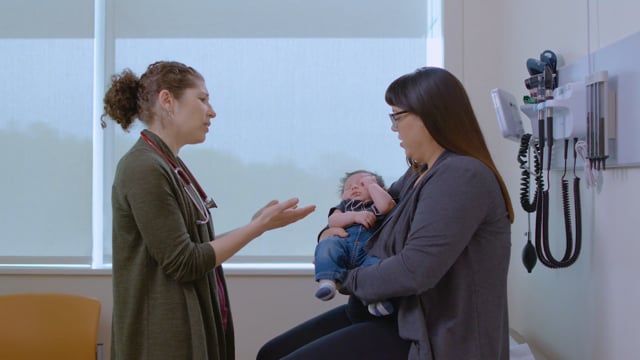Your Child's Vaccines: Hepatitis B Vaccine (HepB)
What Is Hepatitis B?
Hepatitis B is an infection of the liver caused by the hepatitis B virus. People who get infected can have no symptoms, or they can have a mild illness that feels like the flu. Some can be sicker with fever, nausea, vomiting, and jaundice that lasts for a few weeks. And others can become lifelong carriers of the virus and get liver problems later, such as cirrhosis (scarred and damaged liver) or liver cancer.
HepB Immunization Schedule
Kids usually get the hepatitis B vaccine (HepB) as a series of 3 shots:
- shortly after birth
- at 1–2 months of age
- at 6–18 months of age
For the first shot:
- If a newborn's mother carries the hepatitis B virus in her blood, the baby must get the vaccine within 12 hours after birth. The baby also needs another shot — hepatitis B immune globulin (HBIG) — to provide protection against the virus right away. If the baby had a low birth weight (less than 2000 grams or 4 pounds, 7 ounces), they'll need to get the 3 routine doses in addition to this first shot starting at 1 month of age, for a total of 4 doses.
- If a newborn's mother doesn't have the virus in her blood, the baby can get the HepB vaccine within 24 hours after birth. If the baby had a low birth weight, they'll wait to get first dose at 1 month of age or when they're discharged from the hospital (whichever comes first), for a total of 3 doses.
Anyone can get the vaccine series at any time if they missed it as a baby. This is especially important for people who are at higher risk of getting infected. This includes health care and public safety workers, people with chronic liver or kidney disease, people with HIV infection, and people who inject drugs.
Some kids may need to get vaccinated again later in life. These include children:
- whose mothers carry the hepatitis B virus in their blood
- who need hemodialysis
- who have a weak immune system
Sometimes doctors give the HepB vaccine in combination with other vaccines, such as DTaP, IPV, Hib, or HepA vaccines.
Why Is the HepB Vaccine Recommended?
People who don’t know they're infected can spread the hepatitis B virus. So it can’t be avoided just by being careful. That's why health experts recommend that all babies get the vaccine right from birth.
The HepB injection usually creates long-term immunity. Most infants who get the HepB series are protected from hepatitis B infection beyond childhood, into their adult years.
Eliminating the risk of infection also decreases risk for cirrhosis of the liver, chronic liver disease, and liver cancer.
Possible Risks of HepB Vaccine
Side effects usually are mild, and can include a mild fever and soreness or redness at the injection site. Allergic reactions to the vaccine are rare.
When to Delay or Avoid HepB Immunization
Doctors delay giving the vaccine to babies who weigh less than 4 pounds, 7 ounces (2,000 grams) at birth whose mothers do not have the virus in their blood. The baby will get the first dose at 1 month of age or when the baby is discharged from the hospital.
The vaccine is not recommended if your child:
- is currently sick, although simple colds or other minor illnesses should not prevent immunization
- had a serious allergic reaction after an earlier dose of the vaccine or is allergic to baker's yeast
Caring for Your Child After HepB Immunization
Your child may have fever, soreness, and some swelling and redness at the shot site. For pain and fever, check with your doctor to see if you can give either acetaminophen or ibuprofen, and to find out the right dose.
When Should I Call the Doctor?
Call the doctor if:
- You're not sure of the recommended schedule for the HepB vaccine.
- You have concerns about your own hepatitis B carrier state.
- Your child has moderate or serious side effects after getting a HepB injection.
-

How Vaccines Help
Vaccines keep millions of people healthy each year by preparing the body to fight illness. Learn how vaccines help and get answers to your biggest questions about vaccines.


